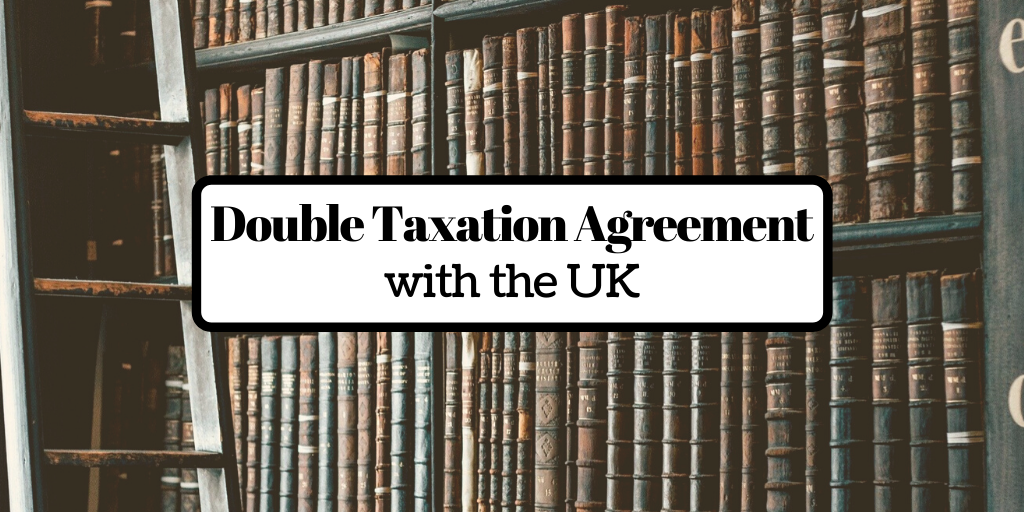Your country’s agreement with the United Kingdom regarding double taxation, known as Double Tax Treaty, Double Taxation Agreement (DTA) or Double Taxation Convention is one of the most important legal bases describing how a company registered by a non-UK resident might function.
In this article, we summarize and explain the most important parts of the Double Taxation Agreement for digital nomads wishing to start a UK-based LTD company. However, if you want to read the full text specific for your country of residence and its relationship with the UK, please visit UK Tax Treaties and find the agreement that pertains to your current or expected country of residence.
For more information about tax residency visit: How to Become a Digital Nomad – Guide to Taxes and Business Registration
What is a permanent establishment?
Most DTAs are based on the OECD Model Convention, where the ‘’permanent establishment” is defined as follows:
(1) For the purposes of this Agreement, the term “permanent establishment” means a fixed place of business through which the business of an enterprise is wholly or partly carried on.
(2) The term “permanent establishment” includes especially:
(a) a place of management;
(b) a branch;
(c) an office;
(d) a factory;
(e) a workshop; and
(f) a mine, an oil or gas well, a quarry or any other place of extraction of natural resources.(3) A building site or construction or installation project constitutes a permanent establishment only if it lasts more than twelve months.
(4) Notwithstanding the preceding provisions of this Article, the term “permanent establishment” shall be deemed not to include:
(a) the use of facilities solely for the purpose of storage, display or delivery of goods or merchandise belonging to the enterprise;
(b) the maintenance of a stock of goods or merchandise belonging to the enterprise solely for the purpose of storage, display or delivery;
(c) the maintenance of a stock of goods or merchandise belonging to the enterprise solely for the purpose of processing by another enterprise;
(d) the maintenance of a fixed place of business solely for the purpose of purchasing goods or merchandise, or of collecting information, for the enterprise;
(e) the maintenance of a fixed place of business solely for the purpose of carrying on, for the enterprise, any other activity of a preparatory or auxiliary character;
(f) the maintenance of a fixed place of business solely for any combination of activities mentioned in sub-paragraphs (a) to (e) above, provided that the overall activity of the fixed place of business resulting from this combination is of a preparatory or auxiliary character.
As it can be seen from the excerpt of the convention, if your business doesn’t have a fixed establishment where most of your business activity happens, for example an office where you meet with clients or a workshop, your business does not have a permanent establishment in the eyes of the law.
This means that if you do most of your business digitally, via the Internet as a digital nomad or a freelancer, you might consider forming an LTD company in the UK.
What if you need an establishment?
Most DTAs state that:
(1) The profits of an enterprise of a Contracting State shall be taxable only in that State unless the enterprise carries on business in the other Contracting State through a permanent establishment situated therein. If the enterprise carries on business as aforesaid, the profits of the enterprise may be taxed in the other State but only so much of them as is attributable to that permanent establishment.
So, if a part of your business requires such a physical presence it does not necessarily mean that the LTD company is an unsuitable solution for you. It may still be worth taking into consideration because only the profit received from the operations of the permanent establishment will be taxed in your country of residence. In many cases, creating a limited company with a subsidiary or a company branch in your home country might prove to be more cost-effective than running an enterprise registered in your home country.
Withdrawing money from the company
Directors’ fees
Probably one of the most important parts of the treaty is the one about directors’ fees:
Directors’ fees and other similar payments derived by a resident of a Contracting State in his capacity as a member of the board of directors of a company which is a resident of the other Contracting State may be taxed in that other State.
It means that you or the people you hire as directors in your limited company can benefit from the tax allowance, which in England is as high as 12 500 GBP per year. Additionally, 8 788 GBP per year is free from the National Insurance Contributions.
Dividends
Dividends are profitable only when you want to cash out a large sum of money. The reason for this is that dividends paid by an LTD company are taxed both in the UK (with Corporation Tax) and in your country (with your local Capital Gains Tax).
(1) Dividends paid by a company which is a resident of a Contracting State to a resident of the other Contracting State may be taxed in that other State.
In this article, you have been introduced to one of the most important documents regarding limited companies. If you have any questions related to the article or you are interested in starting an LTD company, message us – we’ll do our best to help!
info@owlaccounts.com

